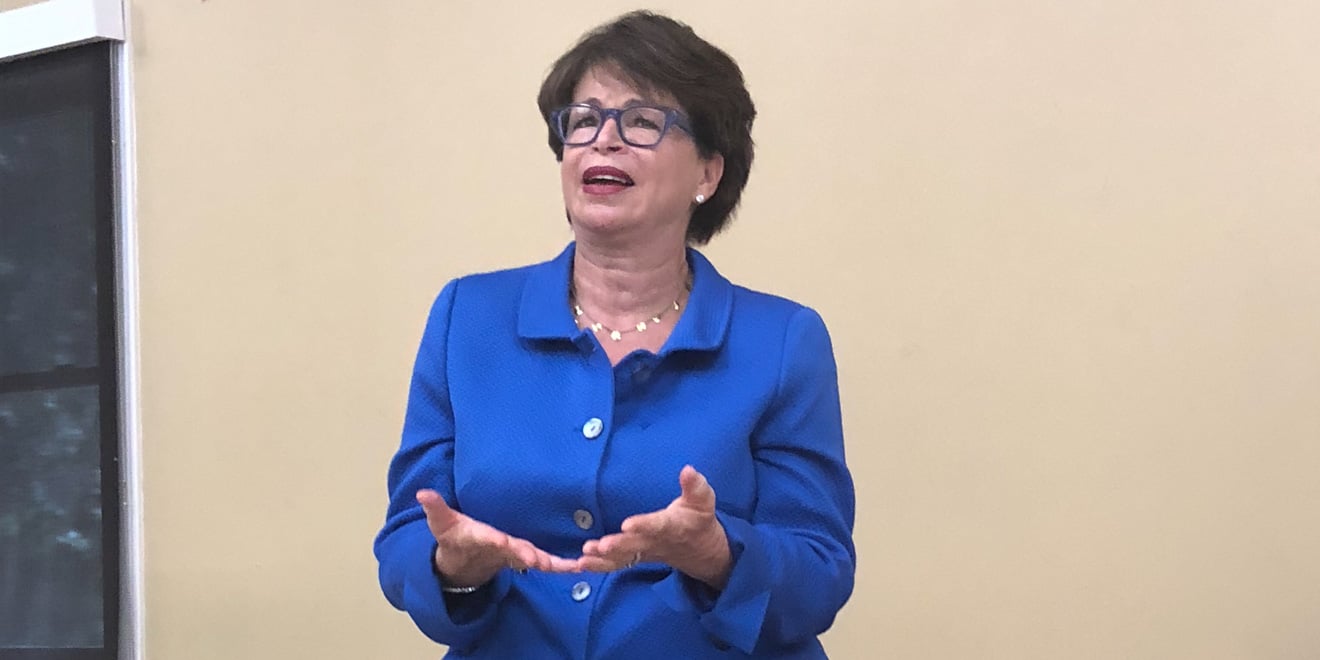Valerie Jarrett ‘78, former Senior Advisor to President Barack Obama, spoke about her college life and her career — from practicing law to working in nonprofits to working in federal government — during a visit to the Black Community Services Center (BCSC) on Friday. Stanford students and alums alike gathered to hear Jarrett answer questions from Henry Washington, Jr., a second-year Ph.D. student in the interdisciplinary program in Modern Thought and Language.
The event aligned with Jarrett’s first class reunion since graduating 40 years ago. In telling stories from her time at Stanford and her career experiences, Jarrett fostered a larger conversation about civic engagement and finding one’s passion.
Her upcoming book, “Finding My Voice: My Journey to the West Wing and the Path Forward,” centers on these themes. Jarrett attributes her autonomy to a conscious effort to distance herself from her expected “10-year plan” and the traditional beliefs of others. After years of working in corporate and real estate law in Chicago, it dawned on Jarrett that she felt like she was living “somebody else’s life.”
“There was nothing about my life that I felt I owned,” Jarrett said. “[I turned to] the quietest voice: the voice inside of me.”
While leaving her law firm to work in city government seemed to Jarrett’s acquaintances like a step down in prestige, it was “practicing law, advocating for the citizens of Chicago — particularly those who didn’t have a voice” that ultimately helped her find her voice.
“And the rest is history,” Jarrett said, to a chorus of cheers and laughter.
Jarrett noted that her first introduction to activism occurred while at Stanford. She highlighted attempts by herself and others in the black student community to convince the University to divest from South Africa. While her protest was not immediately successful, Jarrett said her primary takeaway from her experience was that “it may not be your march that does it, but the cumulative effect over time leads to change.”
Much of Jarrett’s talk was focused on the ability of students to foster such change, both within themselves and in the world at large. She said she remembers meeting a woman who had volunteered at Planned Parenthood in Maine over the summer and, after trying to convince Senator Susan Collins to withdraw her support of Judge Brett Kavanaugh, was incredibly dispirited when he was confirmed. When the woman asked, “How do you not give up?” Jarrett replied, “You don’t have a choice.”
As disillusioning and disappointing as it can be, Jarrett said, the fact of that matter is that change requires time. In an era in which many are shunning institutions, Jarrett suggested that the youngest generations take strides to actively steer clear from this disillusionment. Instead of abandoning them, she said it is necessary to hold institutions accountable and ask, “How can I be a part of the solution?”
Jarrett elaborated, noting that contributing to a solution requires passion and resources.
“The good thing about this campus is that there are resources here to direct you to your passion,” she said. “It’ll make it as easy for you as possible, and you can do it starting today.”
Multiple times in her conversation, Jarrett emphasized that another essential component of creating change is voting. After asking the crowd if they were registered to vote and being met with a resounding affirmation, she emphasized the role black women played in electing a democrat in Alabama’s special Senate election last winter.
“It was African-American women, rolling up their sleeves and getting to work for Doug Jones, a white man but a progressive who cares about equality,” she said. “So I say, volunteer at campaigns, volunteer at resources centers, tutor the kids in East Palo Alto. Do something, and it will make you feel better.”
Samantha Thompson ’22 said she appreciated the authenticity and passion Jarrett brought to the conversation.
“It was just really inspiring to hear someone be so passionate and advocate the fact that I have power here and that I have significance,” Thompson said. “It’s honestly just really nice to come to an event like this and hear someone be so authentic and genuine, let alone someone who represents me and looks like me in some way. And it doesn’t matter the fact that she had a Stanford degree — but [rather] the fact that she cared about something, and she listened to her own voice.”
Contact Emma Smith at esmith11 ‘at’ stanford.edu.
